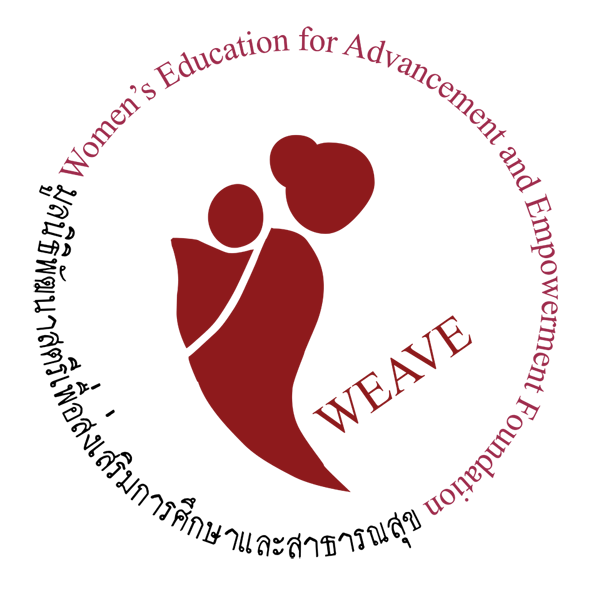By Sarah Matsushita
Like many displaced persons, deciding to leave her home was a long and difficult process for Naw Wah. She began thinking about leaving three years before she fled. The military often came to their village to capture people and use them as human shields in battle with the Karen army. If people ran, they would be shot. “They usually took men, but if no men were there, they took women instead,” she explained.
Crossing into Thailand from Burma meant walking through the jungle for a full day and night. When they reached the refugee camp, Naw Wah didn’t know anyone there, other than her family, including her two youngest children she escaped with and her two oldest sons who had made their way there earlier, after fleeing from their university in Karen State, Burma.
Life in the camp meant very few job opportunities. Back home she tended rice fields, but in Thailand authorities restricted movement and work outside the camp.
Instead, she spent her time taking care of her family and her home and bringing her children to school in the camp. However, her family needed money and she needed a way to rebuild their sense of hope.
Recognizing these needs, WEAVE founders began exploring ways to address the practical need for income generation. Pioneering a unique development program to support women in the camps to make handicrafts in their homes, the Income Generation Project (IGP) was launched in 1996.
WEAVE organizers met with women in its first camp, Huay Kalowke, to demonstrate how to weave, sew and embroider products based on traditional Karen designs, the ethnic culture of the majority of refugees in the camps WEAVE operates. WEAVE supports the women in building skills and understanding economic self-reliance.
Naw Wah chose embroidery because she already had basic sewing skills. She advanced her skills and was selected as a Quality Control leader. This leadership role involves gathering and training the artisans and helping them develop their capacities.
“The support is useful to women and their families,” she said. She is happy to see women have jobs and knows the income and working environment is much better than the limited and dangerous alternatives, like illegal day labor on nearby farms.
IGP is not only about the money though. “When women feel hopeless, the work is useful to forget about everything, about the bad situation and to keep the mind busy. Otherwise they worry a lot,” she said.
In some of the women’s families, the husband doesn’t work outside the home, but takes care of the children while the women earn income. When asked how this role reversal in traditional family structure affects refugee families, Naw Wah says the husbands share the housework and childrearing without complaint. “They are happy to have the money,” she explained.
This reflects a crucial gender benefit of WEAVE’s project: elevating the status of women. Although statistics are difficult to gather due to the sensitive nature of the issue, it is generally acknowledged amongst aid agencies in the refugee camps that domestic abuse happens to women here. Bringing in their own income helps increase women’s self worth and confidence to help them deal with gender-based violence in the home.
For Naw Wah, she is eager to continue capacity development of her own, learning “how to recruit more women” and “take on more responsibility” in her leadership role.
As for the future, Naw Wah focuses on her family. In 10 years, she hopes to join her children who have resettled overseas. She wants to be a grandmother and help take care of all five grandchildren, ranging in age from one and half to 11 years old. If and when she leaves the camp, she is now able to take with her the skills and business experience from IGP and further her financial independence wherever she goes next.
About WEAVE (Women’s Education for Advancement and Empowerment)
Founded in 1990, WEAVE is a non-profit organization that helps and supports the needs of marginalized women along the Thai-Burma border. WEAVE advances the status of women and children to become socially, economically and politically empowered. Through programs for education and capacity development, WEAVE’s goal is to elevate women and children from poverty and vulnerability, to self-sufficiency and hope. www.weave-women.org
Names and some other identifying details have been changed to protect identities.

